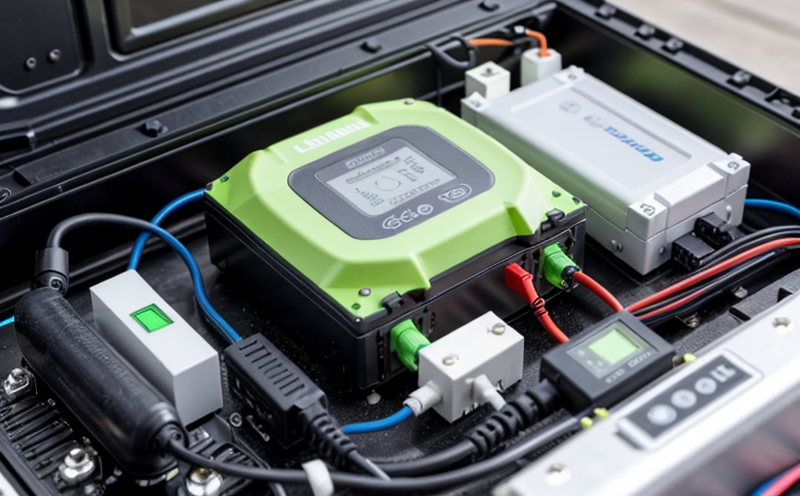IEEE 1881 Lithium-Ion Battery Testing for Stationary Energy Storage Systems
The IEEE Standard for Lithium-Ion Cells in Stationary Energy Storage Systems (IEEE P1881) sets forth the requirements and procedures to ensure the safe, reliable operation of lithium-ion batteries used in stationary energy storage applications. This standard is particularly important as the demand for renewable energy sources continues to grow, driving the need for robust and efficient energy storage solutions.
The IEEE 1881 standard covers a wide range of testing methods aimed at evaluating various aspects of battery performance and safety. These tests are critical for ensuring that batteries meet stringent quality standards, which is essential given their role in large-scale applications such as grid stabilization, backup power systems, and other stationary storage uses.
Testing under this standard includes both electrical performance assessments and safety evaluations. Electrical performance covers capacity retention, energy efficiency, power density, and cycle life. Safety tests focus on ensuring the battery can withstand various stress conditions without compromising its integrity or posing a risk to human health or the environment. The standard also addresses thermal management, mechanical stability, and aging behavior of batteries.
Compliance with IEEE P1881 is essential for manufacturers aiming to enter markets that value stringent quality assurance processes. By adhering to this standard, companies can demonstrate their commitment to producing reliable and safe products, thereby enhancing customer trust and satisfaction.
The implementation of the IEEE 1881 standard in a laboratory setting involves meticulous preparation and execution. Specimens must be carefully selected based on their intended applications within stationary energy storage systems. This selection process ensures that tests reflect real-world usage conditions as closely as possible. Once specimens are chosen, they undergo thorough preconditioning to ensure consistent test results.
The testing procedures outlined in IEEE P1881 are designed to be comprehensive yet practical. They include both initial qualification tests and periodic performance checks throughout the lifecycle of a battery. Initial qualification typically involves evaluating basic parameters like voltage, internal resistance, and impedance at rest conditions. Periodic performance checks may include more complex evaluations such as deep discharge cycles, high-rate charge-discharge experiments, and accelerated aging tests.
Instrumentation plays a crucial role in accurately measuring and recording data during these tests. High-precision equipment is necessary to capture minute variations that could indicate potential issues with the battery. Data collected from these instruments forms the basis for detailed reports provided by our laboratory. These reports not only summarize test results but also offer insights into areas where improvements can be made.
Adherence to IEEE P1881 ensures compliance with international standards, which is crucial for global markets. It helps manufacturers and suppliers navigate regulatory requirements more effectively while fostering innovation through rigorous testing protocols.
In summary, IEEE 1881 Lithium-Ion Battery Testing provides a robust framework for assessing the performance and safety of lithium-ion batteries used in stationary energy storage systems. By following this standard, laboratories can deliver accurate, reliable test results that contribute significantly to ensuring safe and efficient operation of these critical components.
Why It Matters
The importance of IEEE 1881 Lithium-Ion Battery Testing for stationary energy storage systems cannot be overstated. As the world transitions towards greater reliance on renewable energy sources, reliable and safe storage solutions become more critical than ever before.
- Enhanced Safety: With increasing demand comes a need to ensure that all components involved in energy storage are as safe as possible. Proper testing helps identify potential hazards early on so they can be addressed promptly.
- Better Performance: Accurate testing provides valuable data about how well batteries perform under different conditions, helping manufacturers optimize designs for better efficiency and longer lifespan.
- Regulatory Compliance: Many countries have regulations regarding the use of lithium-ion batteries in stationary storage systems. Meeting these standards ensures compliance with local laws and regulations.
- Innovation驱动力来源于哪里?





